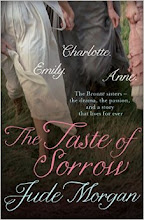Helen Dunmore is a prolific writer, though I have never been drawn to her books. This may have something to do with the covers, which I find singularly banal, or with the fact that the regularity with which she produces new books subconsciously suggests to me that they can't be of a very high quality. Nevertheless, The Siege has been sitting in my To Be Read pile for some time - I can't remember when or why I bought it - and I decided to give it a go.
I know little about the 1941 siege of Leningrad, save that during one of the worst winters known even in northern Russia, German troops surrounded the city and through a series of Blitz-style bombing raids and an almost total blockade which prevented any food or medicine getting through, starved millions of citizens to death. In a letter reproduced at the beginning of this novel, it is made clear that Hitler had no intention of taking over the city - he instead "decided to have Leningrad wiped from the face of the earth." Against this backdrop, then, Dunmore has set a love story.
Or at least, that is the skeleton of narrative over which the flesh of the novel takes shape. But this, for me, is not a love story. The two central characters, Anna and Andrei, meet, fall in love instantly, and then must survive this hellish winter, yes. But The Siege is not a narrative-based novel. It is a descriptive account of a factual event. Fictional characters simply enable the event to be brought to chilling life, and this is the great strength of this book. Dunmore's attention to detail is crucial in showing us how crumbs of bread and broth made of shoe leather become lifelines, and how food, or the lack of it, becomes obsession. This is not a novel one can curl up with and live inside; this is an educational ride through a dark historical chapter.
The style is stilted, giving it the impression of being in translation, and as such, does in fact feel authentically Russian. The characters are neither particularly likeable nor unlikeable; they are vehicles through which a story that must be told, is told.
I wouldn't say I had enjoyed The Siege, but I feel a better informed human being for having read it. And my desire to visit St Petersburg, as it is now (again) called, is all the greater. It is most certainly not a holiday read, or even a summer read, but I think it's an important book, and does deserve the attention it still garners.
Sunday, 29 August 2010
Subscribe to:
Post Comments (Atom)


No comments:
Post a Comment